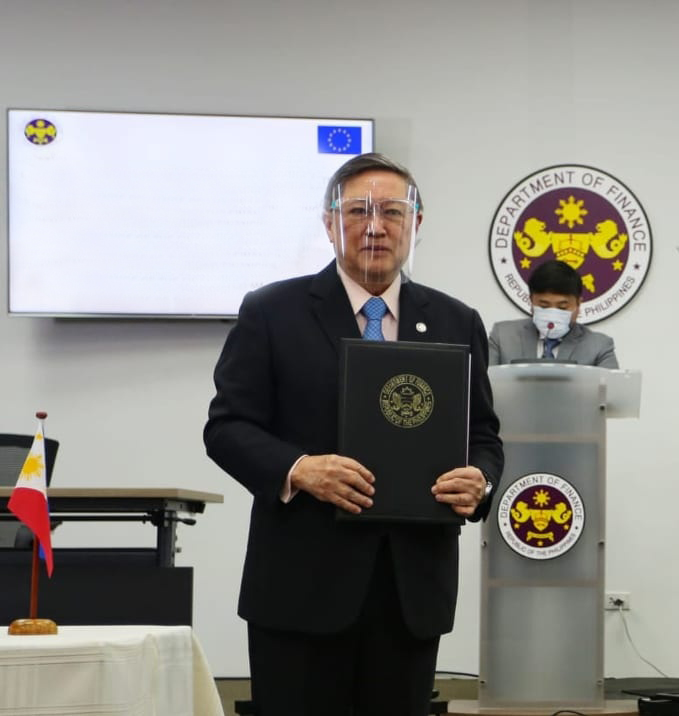By Victoria “NIKE” De Dios
Despite massive spending due to COVID19 pandemic, the Philippines remains in a strong fiscal position to meet the financial challenges of beating the COVID-19 pandemic and rebooting the economy as a result of the game-changing reforms put in place by President Duterte and the Congress over the past four years, Finance Secretary Carlos Dominguez III said.
Dominguez said the higher deficit spending to cover the requirements of the 2021 national budget is necessary to implement government programs that will help the economy bounce back from the pandemic and preserve jobs while creating more employment opportunities next year.
“So we are in a good financial position and we can finance the deficit that we have. We have not cut the budget. We also don’t cut the budget because if you cut the budget, you will make the situation even worse,” Dominguez said during President Duterte’s televised Talk to the People aired this week.
Dominguez said the reforms pushed by President Duterte, such as the Tax Reform For Acceleration and Inclusion Act (TRAIN) and the Rice Tariffication Law (RTL), to name a few, enabled the government to be financially prepared for the challenges of the coronavirus-induced global crisis.
“We are still in a good financial position. We are not under stress,” Dominguez said.
“We have a good economy. What is happening is that this very strict quarantine is holding it back. We have to really open the economy more,” he added.
Dominguez said the government will cover the budget deficit this year through three sources: improving tax collections, securing foreign and domestic borrowings, and higher dividend remittances from government-owned and -controlled corporations (GOCCs).
The Development Budget Coordination Committee (DBCC) earlier projected this year’s deficit to widen to 9.6 percent of gross domestic product (GDP). For 2021 and 2022, the deficit is expected to go down to 8.5 percent and 7.2 percent of GDP, respectively.
Dominguez reported to the President that from January to September this year, preliminary data show that the Bureaus of Internal Revenue (BIR) and of Customs (BOC) were able to collect P1.82 trillion, which is P138.94 billion or 8.26 percent more than the DBCC-set target of P1.68 billion for this period.
“Our collections are good. The BIR and the BOC are doing a good job. Of course, the total collections compared to last year are lower because of less business activity this year,” Dominguez said.
Dominguez said financing support from the country’s development partners and the commercial markets to help fund the emergency spending needed to fight COVID-19 and keep the economy afloat now amounts to US$9.9 billion, which makes up 30 percent of the government’s total borrowings. The remaining 70 percent was sourced from the domestic market, he said.
He said the government was able to secure loans from the country’s development partners at lower interest rates and longer repayment terms.
To further supplement the financing for the pandemic response effort, Dominguez said the Department of Finance (DOF) was also able to collect in the first eight months of 2020 a record P128 billion in dividend contributions from GOCCs, which is 85 percent higher than the P69.2 billion collected in 2019.














